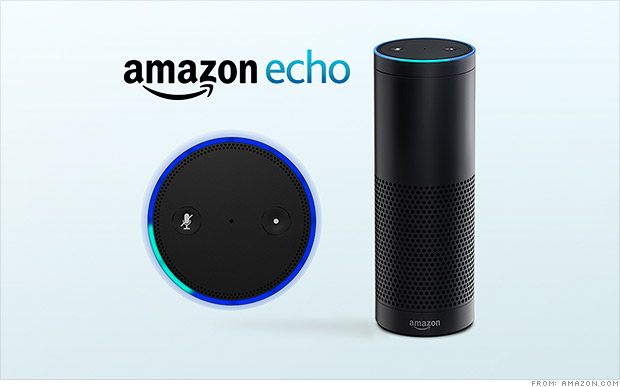The launch of the Amazon Echo and Dot in the UK herald the acceleration of a world in which voice commands to our devices will become the norm over the next 5 years.
Voice recognition software never really took off did it?
There are some who use digital dictation to send files to part-time typists but after all these years I have still never met anyone who speaks to a machine which then does the work.
It remains to be seen whether the QWERTY keyboard will become a story we tell our grandchildren about how we used to communicate “in olden days”.
Imagine a world in which the only people who know how to type are specialists?
For me, that was actually September 1970 during my first day at work with The Friends Provident & Century Group in Manchester, when introducted to the ladies in the typing pool.
For anyone under age 55, the term “pool” didn’t refer to their propensity to swim in formation at lunchtime – it described a reservoir of speedy experts from whom us worker ants could request support in getting our letters typed up (in duplicate), having dictated them into cassette players the size of a microwave.
Back then, we were our own spell-checkers, which probably accounts for the why we Boomers infuriatingly find typos in marketing collateral created by Millennials (there’s a rant for another day).
So from 1970 to 2017 have we come full circle?
Of course, on reflection, my fears for the demise of the keyboard are currently unfounded as the Echo, Dot or Apple-wear that responds to the words “Alexa” or “Siri” aren’t there to type my letters – they are there to switch things on and off (from music to lighting), to notify me of things I need to get done (you have 35 tasks on your list today Chris), remind me to take action (get up!) and to answer my specific questions (is my flight on time this morning?).
It won’t be very long before these devices team up with my home and wearable tech to give me real time reports on how I’m doing (Chris your sugar intake today is complete, Chris no more red wine this week please, Chris you’ve put a few extra pounds on, Chris can I suggest you turn the TV off and get to bed?).
It’s going to be like having a Mum again (have you got your key?).
In dentistry I’ve seen a few attempts to use voice recognition software for treatment planning and case notes – nothing that has persuaded me that the technology will become embedded.
Fascinating, though, to speculate on voice-activated dental technology – let’s call it “Doris” shall we?
“Doris, please provide suction”.
“Doris, could you make a note of my charting please?”
“Doris, could you pop that implant in for me please?”
Maybe not just yet but never say never.
It seems however that, for the moment, we remain doomed to continue doing the work (and the typing) ourselves.
“Alexa – post that blog at 17:30 today will you please?”

